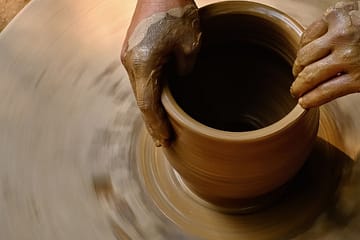The dead are not under the earth
Listen more often to things than to beings
‘Tis the ancestors’ breath
in the voice of the fire
‘Tis the ancestors’ breath
in the voice of the water
From “Breaths†a song by Ysaye Maria Barnwell based on the poem by the same title by Birago Diop.
I have loved this song made famous by Sweet Honey in the Rock for a long time. Finally, this autumn I am learning to sing it. The song loops in my head imploring me to “listen more often” to the ancestors speaking through the fire, water, rocks, and people.

Even before this song started imploring me to “listen more often,†this has been the year of ancestry research for me. I’ve made trips to family cemeteries in New Hampshire and Ohio and have spent a lot of time thinking about my family inheritances. It feels urgent to understand how we got to today through our ancestral stories.
Standing on the banks of the Lamprey river in Epping, New Hampshire, I stood waiting for the water to whisper something to me about the lives of my great grandparents. What I was surprised to feel was how different it was to stand somewhere with a family history that is more than 300 years old. Three hundred years really isn’t very long compared to the 8,000 years of human history in Minnesota. Yet I could faintly sense my ancestors breathing in the granite rocks. I felt surprisingly grounded and supported.
For a long time I don’t think I fully recognized the loving voice within the song “Breaths.†It’s not just telling us one more thing to do (If I can’t keep up with email or Facebook how am I going to keep up with my ancestors, too!). It’s not trying to spook you with a world with ghosts and every object speaking to you. I believe part of what the song is saying is that when we feel alone, when we are making a decision, there is more support and guidance available than we realize.
How do we listen? Here are some ways I’m experimenting with listening more for the breath of the ancestors:
- When I am in nature, purposely disengaging from the chatter in my mind so I can listen to the wordless way the plants and animals communicate. There are many meditation techniques that can help with this.
- Bringing the voice of the fire or water into the room. Doesn’t a conversation feel more special if you light a candle for it? Intentionally lighting a candle or setting out a glass of water is a way to create an opening for listening to the ancestors as well as those in the room.
- It’s not always convenient or easy, but taking a group – a dinner party, a “coffee date,†a worship service, or business meeting – outside connects us with so much MORE. This is probably why the tradition of the post-meal walk is often my favorite part of our Thanksgiving celebrations. I’ve been working on convincing my church to take some of its worship services outside. I think this would be of particular benefit to groups that are struggling with a decision.
Learning to listen to our Earth and the voices of the ancestors is one of the most crucial skills for our time. One thing I am understanding more and more through this practice is that the people and our Earth are truly inseparable.
I imagine living into a future where we acknowledge the seasons, the water, and our profound interconnections with each other in everything that we do. We’d begin our day, our work, our conversations, acknowledging the countless lives that gave themselves to this moment, acknowledging the ancestors that support and carry us. We’d acknowledge the traumas that we’ve inherited and work to heal them. We would make decisions that truly honors the life given us so that future generations have clean water and clear purpose.
I’m curious if the process of listening more often to the ancestors speaking through the land will also support the emerging practice of acknowledging indigenous land. Land acknowledgement is an important political tool, yet too often it is followed by business as usual. What if in addition to educating ourselves about the history and ongoing presence of indigenous people wherever we live, we also learned to listen to the voice of the land and heed it as part of our public conversations? I believe it is only when we’ve learned how to do this deeper listening that we will discover what sustainability and reciprocity really feel like. I think it will feel more grounded and whole than we can imagine.
Thanks for listening!
With big love,
Emily
A few more resources on land acknowledgement, since I brought it up:
- What to consider when acknowledging you are on stolen indigenous lands from the Healing Minnesota Stories Blog.
- Honor Native Land: A Guide and Call to Acknowledgement From the US Department of Arts and Culture
- Territory Acknowledgement resources (and online map of territory boundaries for indigenous people around the world) from Native Land Digital
Listen for Ancestral Love
Join us for the Ancestral Love Dance Retreat. No experience required. Saturday, November 2. Learn more.


